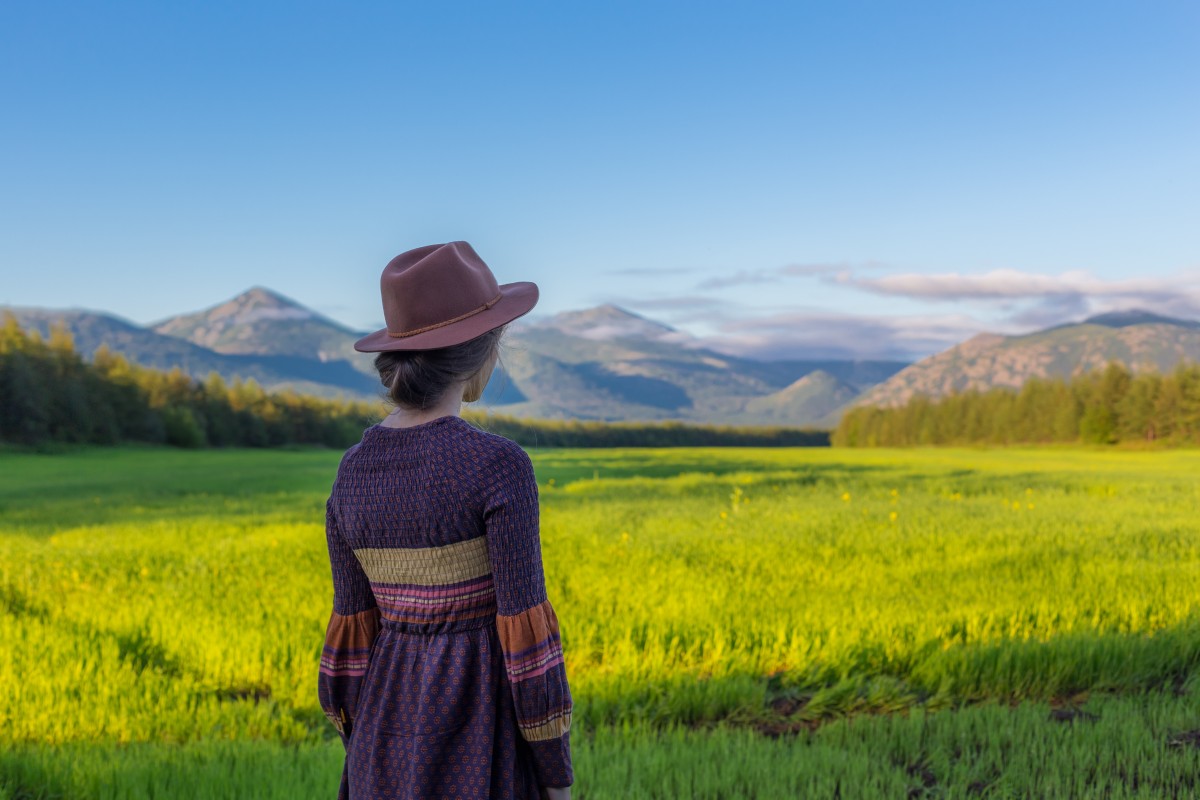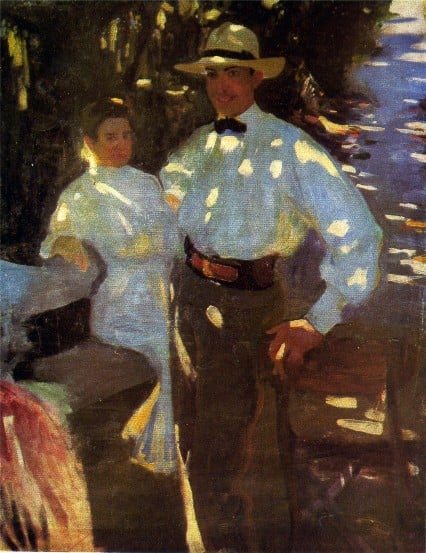
It’s a cute and annoying title because of course it’s a reference to Fukuyama, but I didn’t even realize that until I typed it. What I was referring to is what has been haunting me (and probably you) for the last two weeks: Now that history has come back to Eastern Europe with a vengeance, what is the thing, what are the things, that we can do to make sure that there is more history to come?

Because the danger is that there will not be. I’ve felt very… grizzled veteran of being afraid of nuclear war in the last couple of weeks. I feel like I’m surrounded by aliens: people who have never laid awake at night looking out the window expecting to see a blast.
I am: these people are called zoomers, and most millennials, at least the non-neurotic ones. I was talking to a guy – OK, I was DMing with a guy – who is Moldovan living in America and who is planning to go over there as a missionary in a couple of months, if he can. He was saying that he thought that Biden’s refusal to consider “closing the sky” or putting American boots on the ground had to do with the unpopularity of war: Americans wouldn’t vote him back in if he got us involved in a war.
The kind of war he had in mind is the Afghanistan kind, the endless stupid slog kind that touches us here when we remember oh there’s a war on. That’s not the kind of war this would be, and as far as I know, Biden’s commitment to not get the US involved is due to the fact that he is (thank God) an old Cold Warrior and he remembers how cold wars work, and proxy wars, and how they must work.
We need so many more like him: we need to call back the old Cold Warriors from I guess their retirement homes, we need to let them tell us the anecdote (they really love telling that anecdote) about Kennedy having read Barbara Tuchman’s The Guns of August just before the Cuban Missile Crisis, and him saying to Bobby “I don’t want to be the occasion for someone writing a book in the future called The Missiles of October.” We need all their anecdotes, I think, and all their doctrine. The antinuke activists too: we need them also; they’re probably in the same assisted living places (or, let’s be honest, probably in cheaper ones.)
We need all of those instincts and doctrines and all of that existential dread, which at its best is a reflection of the dread of Apocalypse, and which at its best can lead us to turn to God in our fear and smallness, and to pray. We need that sense that if the world is to end, let it not be through our carelessness or negligence or grandiosity; let it not be through our bad theology or impatient diplomacy; our hysteria and careerism; the excitement we have in getting to do something as dramatic as go to war.
Let us be found seeking peace and planting trees (I had to write that because it is the kind of thing that people who are in favor of a No-Fly Zone think that people like me say, and I wouldn’t want to disappoint them) and putting our bodies on the line to rescue refugees; calling injustice what it is and seeking non-eschatological justice, leaving eschatological justice to God and not letting the perfect be the enemy of all of Europe being glassed.
And we need it all fast. We need them to teach us: the boomers, and especially the Silent Generation. We need to read their books and talk to them. We need them to help train a new generation in how to be afraid and how to be brave and how to be wise, and how to keep a cold war absolutely and unequivocally cold. I don’t think mutually assured destruction is a good strategy or an ethically acceptable one, but at the moment it’s what we have. We need to learn again how to let deterrence deter.
Samuel Kimbriel has pointed out that the habits we have developed – habits of thought, of rhetoric, of what we believe to be political action – belong to a unipolar world: a world where there is one physical power: the sword of the state. All other powers, and there are many, are powers that operate by symbol and persuasion and rhetoric, economic pressure and age and illness, stories and shunning and law and policy, cancellation and cleverness and bankruptcy and graduation. These he calls the Rules of the Court. We are good at them, behind our laptops. We understand them.
“What’s dangerous about the debate about no-fly zones,” he says, “is how slow people are in calibrating to the fact that the rules of the world are not the same as the rules of court. We’re seeing public influence campaigns, attempts to nuance the dangers, witty stunts. This is all the habit of court, and it’s very dangerous to have grown so dull to how reality itself works.”
A no-fly zone, another friend mused. That’s when … there’s a zone, and … you don’t fly in it. Her point was that the vagueness of the words permits self-delusion about what it would mean. The result is that you get people protesting in the streets calling to #ClosetheSky and calling for No WWIII, no nuclear apocalypse, at the same time.
Which do you want more? Ya gotta chose one.
The twitter-mob flavor of the call to intervene is something I can only be grateful is not affecting our extremely offline president. But we should be frightened about how thoroughly it is affecting us.
Kimbriel’s colleague Damir Marusic details here what escalation would look like. It’s not a ladder, he points out. Following “Closing the Sky” what you’ve got is a escalatory slide. The farther you go the faster you go and the harder it is to stop. We are now at the point where it is easiest to not have a nuclear apocalypse. Every step in escalation we consent to, in distraction, in justified moral clarity, in pity, in commitment to international norms, in idealism: every step will make it harder for us not to have a nuclear apocalypse. Every step after we try to “help” in the wrong way.
We are now at the point where it is easiest to not have a nuclear apocalypse. Every step in escalation we consent to, in distraction, in justified moral clarity, in pity, in commitment to international norms, in idealism: every step will make it harder for us not to have a nuclear apocalypse. Every step after we try to “help” in the wrong way.
My family is from that part of the world – my dad’s family. Like every Ashkenazi family we used to say we came from “Russia” – in fact it was Belarus. I have family by marriage in Ukraine now, in Odessa.
I want that part of the world to exist. It’s survived so much. It’s old, and young. It’s survived Scythians and a couple of literal Viking invasions (remember the Kievan Rus’?) and Cossacks burning villages and Genghis Khan, and an overly-starchy diet and a troubling obsession with Eurovision, and Stalin, and Literal Hitler.
It would not survive US or NATO direct help. It would not survive a no-fly zone. We have to love Ukraine first by making sure it, and the rest of Eastern Europe, continues to exist. It will outlast us all, if we let it. We have to be the grownups in the room, and think in terms of what will ensure that there is non-poisoned land, and people on that land, in ten years, and a hundred, and a thousand.

I don’t know for sure what will happen in the next few weeks and months but I know what will happen in the next years at maximum: I know what Putin will do, with absolute certainty. He will do what all tyrants do. Putin will die. Maybe an international court of justice will judge him first. I don’t know about that. I hope so. But that’s not certain. What’s certain is that God will judge him.
I want there to be Slavs around when he is dead. I want the history that has come back to Eastern Europe with such a vengeance not to end. I want Eastern Europe’s story not to end in fire and glass and poison. I am not ready for that story to end. Putin is an enemy of his own people and a petty tyrant who fancies himself Peter the Great. He is not worth ending the story of Eastern Europe over. He doesn’t get that power.

I’ve got an uncle over in Poland now, working to get refugees out and care for them; he’s linked up with some other family as translators. There are things we can do: those are the kind of things we can do. We can rescue, we can encourage, we can call injustice and tyranny what they are. But an American military “rescue” would, with foreseeable probability, mean the rapid end of Ukraine, the end of the story of Eastern Europe, the end of Slavs, maybe the end of all of us stupid weird God-imaging creatures, stumbling around with too much power: I have gotten so fond of us all in the last couple of weeks. I love this world. I don’t want it to end.
Let it not end on our watch. Let that story not end on our watch.
Make peace. Build peace. Pray for peace.
Susannah Black Roberts is senior editor at Plough. She is a native Manhattanite. She and her husband, the theologian Alastair Roberts, split their time between Manhattan and the West Midlands of the UK.
Topics: